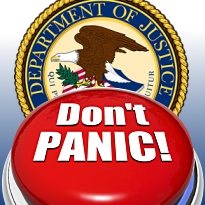 A brief recap of some of the reaction to the US Department of Justice’s pre-Christmas bombshell that the Wire Act applies only to sports betting, potentially clearing a path for states to legalize online versions of non-sports gambling…
A brief recap of some of the reaction to the US Department of Justice’s pre-Christmas bombshell that the Wire Act applies only to sports betting, potentially clearing a path for states to legalize online versions of non-sports gambling…
Illinois and New York were the two states that brought the initial query which the DoJ legal opinion sought to clarify. Illinois Lottery superintendent Michael Jones told the Daily Herald that he hoped his state could start selling tickets online within the next three to four months. New York lottery director Gordon Medenica told the Wall Street Journal that his outfit would also start selling tickets online in 2012. “We’ve built the system and had it on a shelf waiting for more legal certainty.”
California State Lottery chief Robert O’Neill told the Los Angeles Times that the DoJ opinion had opened up “a major potential channel” for online ticket sales, but that until his legal eagles had more time to parse the opinion, it remained “just a potential channel.” O’Neill also said lottery officials were not presently considering online poker, which he called “a whole other discussion.” In Massachusetts, state Treasurer Steven Grossman told the Boston Herald that he’ll convene an online gaming task force to explore online options, which include ticket sales, ‘online lottery games’, credit card sales and (possibly) online poker.
US Digital Gaming, a longtime backer of state-level online gaming, couldn’t be happier with the DoJ’s opinion, with general counsel Melissa Riahei calling it a “wonderful Christmas gift to state governments nationwide.” Also dancing madly around the Christmas tree is US lottery and gaming tech supplier Scientific Games Corp., which saw its shares rise 15.47% on Tuesday.
In Nevada, where state regulators approved online poker regulations the day before the DoJ opinion was made public, Aristocrat Technologies has become the latest company to apply for a license. Citing sources at the Nevada Gaming Control Board, CardPlayer.com identified the subsidiary of Australia’s Aristocrat Leisure Ltd. as the seventh company to formally submit an application. Of the seven applicants, only South Point Casino has applied for an operator’s license; the rest seek only to provide technological support for operators.
In the District of Columbia, the only other US jurisdiction that has passed online gaming legislation, backers of the DC Lottery’s iGamingDC plan are feeling vindicated by the DoJ opinion, which they feel echoes the opinion offered by DC Attorney General Irvin B. Nathan in June. Nevertheless, DC Council member Jack Evans has asked DC Inspector General Charles Willoughby to testify at the Jan. 26 hearing before the Committee on Finance and Revenue. Willoughby has prepared a report on the iGaming DC plans, which is expected to be made public in mid-January.
Naturally, every party has its pooper. In Utah, one of only two states in the US that permits no form of gambling, Republican state Rep. Stephen Sandstrom has drafted a bill that would “keep Utah free from the negative impacts of legalized gambling.” Sandstrom, who plans to run for a federal House of Representatives seat this November, originally crafted his bill as a way of beating back Rep. Joe Barton’s federal online poker bill, which, if passed, might negate Utah’s previous successes at blocking Indian casinos on Utah soil. (If Utah allowed any form of gambling, federal law would require it to also accept Indian casinos.) Sandstrom now says his bill will be a referendum on the DoJ opinion, which he described as a “desperate attempt to try and fix today’s recessive economy.” Desperate times call for desperate measures, Sandy…